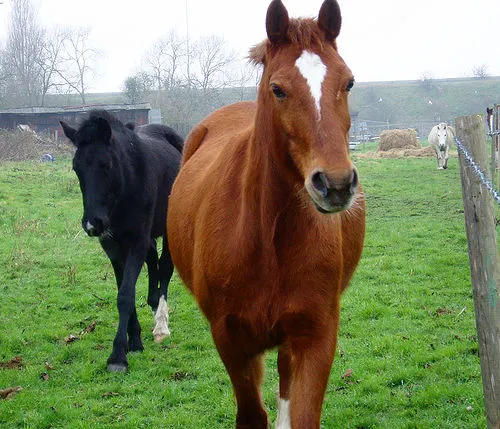Equine Herpesvirus

Equine herpesvirus is a common virus of horses worldwide, and can cause respiratory disease, abortions, and less commonly neurologic signs as it has in these cases. It is transmitted by aerosol and close contact between horses, including fomites such as shared tack, equipment and by human hands. Though there are vaccines available for prevention of respiratory disease and abortions caused by equine herpesvirus, there are currently none that are labeled for prevention of the neurologic form of the disease.
Precautions
Please contact your veterinarian if your horse may have been exposed to EHV-1 at one of these shows or through contact with a horse that has returned from one of these events. In general, exposed horses should be isolated and have their temperatures monitored twice daily. If an exposed horse develops a fever, diagnostic testing of nasal swabs and blood should be performed. Consideration should be given to vaccination of resident, non-exposed horses on premises where potentially exposed horses are returning to, as per your veterinarian’s guidelines.
Resources -- Links and fact sheets (PDF)
Equine Herpesvirus Brochure 2009 (PDF 4MB)
California Animal Health and Food Safety Laboratory
UC Davis Real Time PCR Research and Diagnostics Core Facility (PCR test)
UC Davis Center for Equine Health Fact Sheet
http://www.vetmed.ucdavis.edu/ceh/ehv1_general.cfm
California Department of Food and Agriculture Equine Herpes Myeloencephalopathy Fact Sheet (PDF 286KB)
CDFA Equine Herpes May 13th update
American Association of Equine Practitioners Fact Sheet
http://www.aaep.org/ehv.htm
American Association of Equine Practitioners Fact Sheet
http://www.aaep.org/pdfs/control_guidelines/Equine%20Herpes%20Virus.pdf
